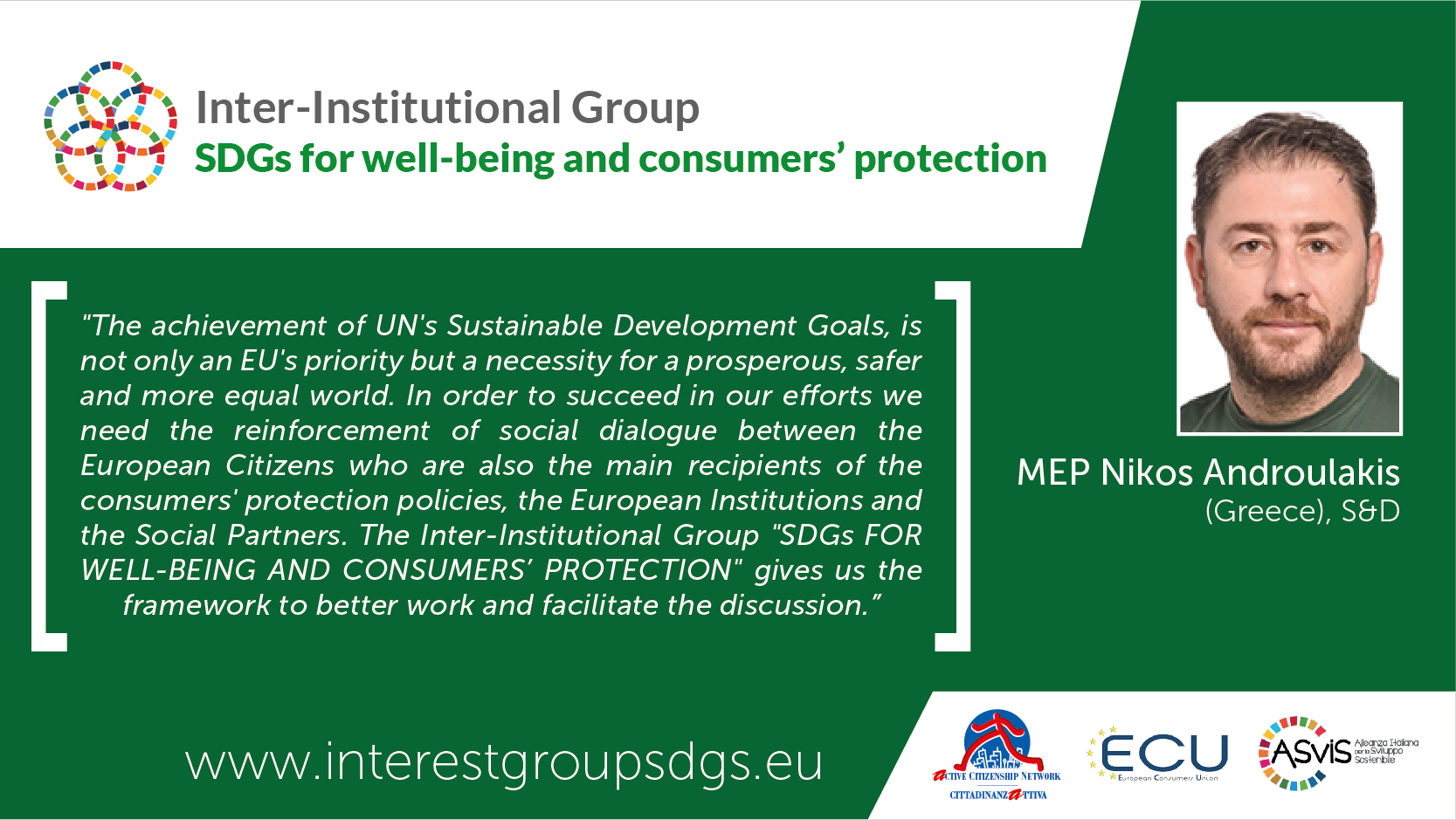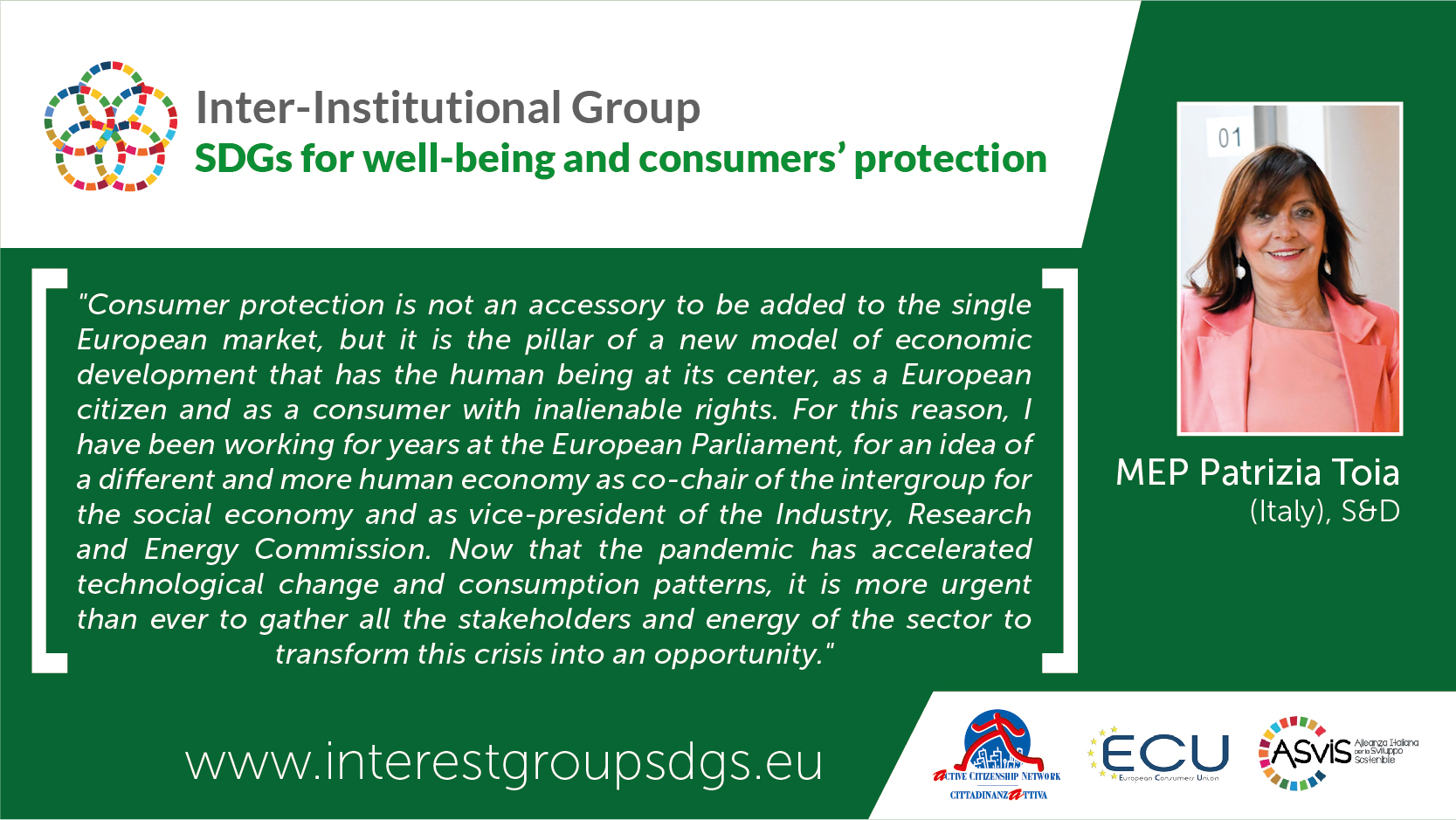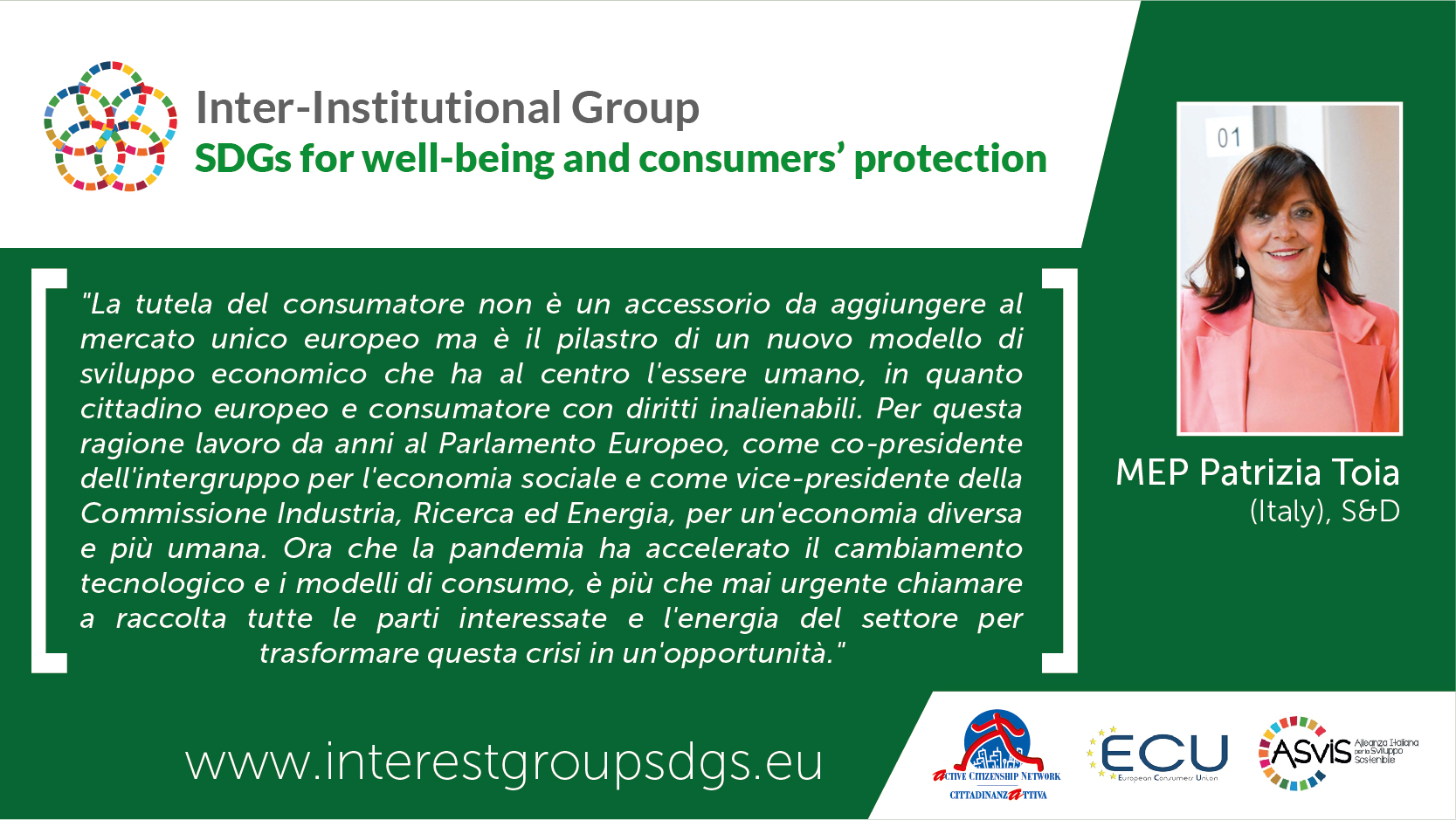Just after the 2019 European elections, Active Citizenship Network (ACN), the EU branch of the NGO Cittadinanzattiva, the European umbrella association European Consumers Union (ECU) and the coalition Italian Alliance for Sustainable Development (ASviS) decided to promote a political initiative that aims to create the informal Inter-institutional Group “SDGs for well-being and consumers’ protection”.
The Inter-Institutional Group represents the desire of the civil society to contribute to the SDGs and the Green New Deal, aiming to discuss and raise awareness on how the individual, as a consumer, can give her/his contribution. In fact, we strongly believe that citizen and consumer empowerment should be the pillar of the transition towards a more inclusive and sustainable Europe.
The transition to a sustainable Europe has to be based on the commitment that "no one is left behind", as stated by the European Commission’s President Ursula Von Der Leyen, and that everyone has to be involved in the achievement of this goal. To do so, social concerns should be addressed in full synergy with environmental and economic ones. The transition to a sustainable and efficient economy requires radical changes in the consumption habits of our society and in the production models of our economy. Leaving no one behind means that all members of the society, including the most vulnerable classes, are enabled to take advantage of this opportunity, while being more protected from the risks. Leaving no one behind also means empowering as many people as possible to play a positive and active role so that they can fully participate in the transition. For this reason, the active participation of European citizens should be at the base of this transition.
The group is opened to the members of the EU Institutions that wish to work together with the civil society to ensure that Europe will be a global leader in the development and implementation of the SDGs.
The Inter-institutional Group aims to be a:
- Awareness rising catalyst across Europe for civil society, business, research, media,etc. at local, national and European level.
- Dialogue facilitator between the European institutions and stakeholders active in specific fields.
- Incubator of good practices in order to facilitate the process of exchange, contamination and dissemination of best practices to enable EU citizens to make sustainable choices.
The initiative is already endorsed by the “SDGs Multi-Stakeholders Network”, that counts many National and European Associations, and is in line with European Commission's initiatives as the "New Consumer Agenda" and the "Consumer Day”, organized by the DG for Justice and Consumers, titled: "Consumer policy in the service of the Sustainable Development Goals and the 2030 Agenda".
The SDGs Multi-Stakeholders Network aims at collecting and sharing best practices, as well as comparing experiences from different EU Member States. These practices will be shared with the Members of the Inter-institutional Group to discuss with them how to promote consumers’ rights and fostering sustainable production & consumption. The final objective is to share with the public clear and accessible information, making sustainability an easy and conscious choice for the EUcitizens.
Many European institutions have addressed the issue of the role of the 2030 Agenda in European policies. The positions adopted by the European Commission, the European Parliament, the Economic and Social Committee and the Court of Auditors have confirmed the commitment to make the European Union as a whole the most sustainable area in the world. The legislative initiatives of the European Commission on environmental, social and economic matters are clearly inspired by the SDGs, and increasingly the Parliament will be tasked with interpreting legislation within the framework of the 2030 Agenda.
Furthermore, as stated by the European Parliament when discussing the Conference for the Future of Europe, the importance of engaging citizens and civil society in general in shaping the future of Europe will be of paramount importance. MEPs have stated repeatedly their desire for citizens to be at the core of broad discussions on how to tackle internal and external challenges of the EU. People of all backgrounds, civil society representatives and stakeholders at European, national, regional and local level must be involved in setting the EU’s priorities in line with citizens’ concerns in a bottom-up, transparent, inclusive, participatory and well-balanced approach, that includes establishing several Citizens’ Agoras. That is the spirit with which the Inter-Institutional Group hasbeen created, in order to add a space to reflect on sustainability.













